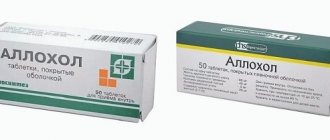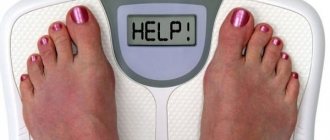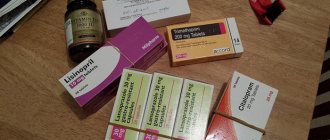Medicines for stomach pain should be taken only after the cause has been determined. The first question that needs to be answered in order to choose the right remedy for the stomach is: does it really hurt? If there is no doubt about the origin of the pain, you should find out the reasons for its occurrence.
How can you determine where your stomach is located?
Draw a conventional horizontal line through the navel. The stomach will be located above it. Approximately 2/3 of its parts are located in the left hypochondrium, the remaining part is in the epigastric region (under the costal arch of the chest). Therefore, stomach pain is most often felt in the area of the 4th intercostal space on the left.
Figure 1 - When your stomach hurts, you need to find out whether the stomach is to blame
Main causes of stomach pain
The need to take syrups or tablets for stomach pain most often results from:
- unhealthy diet - regularly skipping meals, eating dry food, overeating, fasting, alcohol abuse, eating sour, spicy food on an empty stomach;
- poisoning with low-quality products, inedible substances;
- cholecystitis - inflammation of the gallbladder, stones in it;
- pancreatitis - inflammation of the pancreas;
- gastritis, diverticulitis - inflammatory diseases of the gastric mucosa;
- stomach ulcer, duodenal ulcer;
- gastroesophageal reflux - the valve that separates the esophagus from the stomach does not work correctly, resulting in digested food being thrown into the esophagus;
- parasites – cause intoxication of the body, which is manifested by vomiting, nausea, bloating, etc.;
- intolerance to gluten, lactose, and other substances;
- prolonged stress.
Figure 2 - About 10% of stomach pain is caused by an ulcer
How does it hurt?
The pain can be aching, sharp, dull, bursting, squeezing, cutting, stabbing, pulling.
| Nature of pain | Possible diseases |
| Sudden acute | Cholecystitis, pancreatitis, duodenal ulcer |
| Sudden sharp | Poisoning, chemical burn of mucous membrane, perforation of ulcer |
| Dull aching | Chronic gastritis, initial stage of ulcer. With gastritis, pain appears on an empty stomach and immediately after eating |
| Dull aching, turning into a burning sensation | Acute gastritis, ulcer |
| Spasms, contractions (most often at night or after eating) | Inflammation of the duodenum, ulcer |
| Mild aching pain that does not disappear for a long time | Polyp, malignant formation |
| Severe pain, contractions | Gastrointestinal infections |
| Severe pain in the upper abdomen that lessens over time but does not go away completely | Diseases of the large intestine (eg, colitis) |
| Severe pain in the navel area that moves to the right and up | Appendicitis |
A short-term “shooting” pain that is felt after a sudden movement or when inhaling indicates a spasm of the diaphragm. In this case, the stomach may not be to blame - such sensations are characteristic of circulatory disorders and inflammatory processes. Therefore, medications for stomach pain are likely to be ineffective.
Figure 3 - The nature of pain is important for diagnosis
To accurately make a diagnosis and prescribe effective treatment, a description of the pain is not enough. You need to undergo a series of tests, for example, for the presence of Helicobacter pylori (the bacterium that causes stomach ulcers), as well as ultrasound, FGDS. That is why you should ask not a pharmacist, but a gastroenterologist, what to drink for stomach pain.
Under no circumstances should you endure stomach pain or suppress it with medications without a doctor’s prescription. Painful sensations are a signal that something is already going wrong in the body, and urgent professional intervention in its functioning is necessary.
Medicines for stomach pain that you can take while waiting for the doctor
It happens that the pain in the stomach becomes unbearable, and you still have to take some kind of pill. This should be done as a last resort, since taking the drug can distort the picture of the disease and give grounds for an incorrect diagnosis. In general, doctors allow you to take:
- analgesic - medications that temporarily relieve pain, for example, analgin. At the same time, the situation in the stomach does not change, and there is no need to delay visiting a doctor;
- antispasmodic - drugs that stimulate the smooth muscles of internal organs: Papaverine, No-Shpa, Duspatalin, Trimedat. As a result, the passage of food and gases is facilitated, and muscle spasms disappear.
If you have stomach pain, it is better not to take pills immediately before seeing a doctor. To help quickly make the correct diagnosis and prescribe treatment, prepare the following information:
Figure 4 - Suspensions and tablets for stomach pain should not be used before examination by a doctor
- the circumstances of the pain (before, during, after eating, what you ate, drank, or how long you didn’t eat or drink, whether there were abdominal injuries, blows, stress);
- other symptoms: nausea, bloating, foul-smelling gas, rash, vomiting, heartburn, dizziness, diarrhea/constipation, change in the consistency and color of stool, blood, mucus in the stool;
- did you take medications for stomach pain before applying, what are you currently taking for other diseases;
- What changes have you had in your health status recently?
Try to move less, do not eat and, if possible, do not drink. You cannot give enemas or take laxatives.
Note! Never use a hot heating pad or other heat. Sometimes this does help reduce pain, but it increases inflammation, bleeding and pus formation. Such self-medication can be life-threatening.
Figure 5 - If you have stomach pain, you should not use a heating pad
In what dosage forms are stomach medications available?
Medicines for the stomach are available in the form of tablets, syrups, suspensions and powders, which should be dissolved in juice or water. Some drugs are available in different dosage forms. It depends on their purpose and characteristics of the action. For example, enveloping and adsorbing drugs (Almagel, Maalox, Phosphalugel, Gaviscon) are produced in the form of a suspension, and children's drugs are in the form of syrup.
Medicines for stomach pain in tablets:
- analgesics;
- antacids;
- proton pump blockers;
- astringents;
- gastroprotectors;
- combination drugs;
- antispasmodics.
List with names of stomach pills
Before we start figuring out how to treat a stomach that hurts, let’s understand that there is no universal cure for stomach problems. The miraculous elixir for the stomach has not been found either. In fact, many drugs are not much different from each other and only have different names.
Groups of tablets:
- antispasmodics aimed at relieving spasms (“No-shpa”);
- antidiarrheal drugs (“Smecta”, “Loperamide”);
- antiemetics (“Ondansetron”);
- carminatives that eliminate bloating (“Espumizan”);
- antihistamines (“Fexofenadine”);
- enzymes that improve digestion (“Mezim Forte”);
- antienzyme drugs used in the treatment of the thyroid gland (“Traxolan”);
- drugs used to treat ulcers and gastritis (Vicair).
The problem of choosing medications for the stomach is relevant and depends on the nature and localization of painful sensations. First of all, you should establish the nature of the pain, its intensity and the place where it occurs. Stomach tablets are often available in capsules. Capsules are tablets that swell in the stomach. Capsules are the most convenient for use. In addition to capsules, there are medications for sucking, chewing and even solutions, drops, syrup, emulsions and powder.
List of the most common medications:
- "Linex" is an antidiarrheal drug that helps restore the natural microflora of the gastric tract;
- "Gastal" - helps in reducing the increased acidity of gastric juice, knits, heals wounds of the stomach walls;
- "Drotaverine" - narrows the smooth muscle tissue of the stomach;
- “Mezim” is an enzyme preparation that helps normalize liver function;
- “No-Shpa” (drotaverine) is the best remedy that will help with spasms. Relaxes smooth muscles and eliminates intestinal narrowing;
- "Valoserdin" - has an astringent and antispasmodic effect;
- “Tempalgin” is the name of a combined analgesic and sedative medication;
- "Penzital" - helps speed up the process of food digestion;
- "Trimedat" - constricts smooth muscles, providing an antispasmodic and astringent effect;
- "Motilak" is an effective antiemetic;
- "Ketorol" is an anesthetic medicine;
- "Espumizan" - used for bloating, available in the form of an emulsion;
- "Loperamide" - has an antidiarrheal effect, reduces intestinal muscle tone;
- "Phosphalugel" - has an enveloping, astringent effect, removes toxins, helps normalize the acid balance, and eliminates stomach problems.
What to drink for your stomach?
What exactly to drink for stomach pain depends on the diagnosis:
- for gastritis: Smecta, Almagel - to restore the gastric mucosa and against diarrhea, to relieve inflammation - Iberogast, to eliminate spasms - No-Shpa, Cerucal, to correct the enzyme composition of the medium - Mezim, Digestal;
- for cholecystitis, gallstones: Allochol, Gepabene;
- in case of poisoning: sorbents Enterosgel, Lactofiltrum, Activated or White carbon, Smecta. Analgesics will also help get rid of stomach pain in the initial stages of the disease: Analgin, Baralgin.
- for high acidity: antacids Gaviscon, Rennie, Maalox;
- for ulcers: wound healing - Methyluracil, Actovegin, to suppress Helicobacter pylori - Ampicillin, Pilobact-Neo, proton pump blockers Omez, Omeprazole, Nexium, other drugs for complex treatment, selected individually based on test results.
A number of medications for heartburn and stomach pain are useful in a variety of situations. For example, Smecta can be taken for stomach pain caused by eating disorders, heartburn, bloating, acute or chronic diarrhea, gastritis, stomach and duodenal ulcers, colitis.
Many medicines have analogues. For example, to relieve spasms of the smooth muscles of internal organs, you can buy No-Shpu or Drotaverine. The main active ingredient of these drugs is the same – drotaverine. However, if you pay about $1 for 30 tablets of Drotaverine, then for the same number of yellow tablets called No-Shpa - about $2.
Causes of gastrointestinal diseases and treatment features
Diseases of the digestive tract in most cases develop under the influence of bad habits and poor nutrition. The main risk factors for the development of gastrointestinal pathologies:
- constant stress;
- low physical activity;
- infectious infections;
- strict diets;
- binge eating;
- eating large amounts of junk food;
- excessive use of medications.
Diseases can be genetically determined - this phenomenon is observed in patients with gastroesophageal reflux disease, increased sensitivity of the mucous membranes of the stomach, low acidity of gastric juice and peptic ulcers.
If the disease is of a functional nature, conservative treatment is prescribed. For organic lesions of the gastrointestinal tract, conservative therapy is combined with surgical intervention.
To correct acidity and enzyme composition, antacids, enzymes, and natural pepsin substitutes are prescribed. For ulcerative lesions of the stomach and duodenum, antihistamines, enveloping and regenerating agents are prescribed. Infectious lesions are treated with antibiotics, and the lack of beneficial microflora is treated with probiotics.
Which is better - Gaviscon or Almagel?
The effect of both of these gels for stomach pain is that they form a dense barrier (film) that envelops the gastric contents and is not absorbed during digestion. This protects the inflamed stomach walls from the effects of acid. At the same time, the composition of the gastric juice itself does not change, and food digestion occurs in full. The gel-like film also protects the esophagus if stomach contents are thrown into it, preventing heartburn and inflammation. To get rid of stomach pain, these gels or suspensions should be taken after meals without drinking water. The dose of the drug lasts approximately 4 hours. The cost of both drugs, depending on the offers of pharmacy chains, differs by literally $0.3–0.5.
Figure 6 - A number of drugs for stomach pain have a similar effect
You should make a choice based on your health status, side effects and the composition of the drugs. For example, Gaviscon is allowed for pregnant women to take, but Almagel is not recommended because the necessary studies have not been conducted on it. Therefore, the right to make the final decision on prescribing the drug is transferred to the doctor, who will weigh the benefits for the mother and the likelihood of harm to the fetus.
What tablets should I use?
Antispasmodics
When choosing the best tablets, pay attention to antispasmodics that act on smooth muscles, improve blood circulation, and are aimed at relieving spasms. Antispasmodics are divided into two groups. Myotropic (reduce the concentration of ions in the cell cytoplasm). These include:
- "Papaverine";
- "Dibazol";
- "Apresin";
- "Gimecromon";
- "No-Shpa";
- "Mebeverine";
- "Minoxidil";
- "Magnesium sulfate".
Neurotropic (affect nerve receptors):
- "Atropine";
- "Aprofen";
- "Difacil";
- "Ketorol";
- "Ganglefen";
- "Baralgin";
- "Buskopan".
Antacids (gastroprotectors)
Antacid tablets are designed to reduce acidity by better neutralizing hydrochloric acid in the stomach. They reduce the digestive activity of pepsin and adsorb substances that fill the stomach. These include:
- "Almagel";
- "Maalox";
- "Renny";
- "Phosphalugel";
- "Antacid of magnesium, calcium and sodium";
- "De-Nol."
Particular attention from this group should be paid to a drug called “De-Nol”, which not only protects the mucous membrane and is designed to cure gastritis, is not harmful, but also accelerates the regeneration of the epithelium in case of damage. It is used when emergency assistance is needed. Possible side effects when using antacids:
- hypercalcemia;
- stool disorder
- intoxication.
Typically, antacids are used for heartburn.
Alginates medicines
Not so long ago, there was no alternative to antacids to relieve heartburn. Only recently have alginate medicines appeared on the market, the main component of which is alginic acid, isolated from brown algae. Alginate medications for the stomach are designed to neutralize pepsin, which fills the stomach. They are fast-acting and generally safe. Strengthen the immune system and are anti-allergenic. These include:
- Gaviscon;
- "Laminal";
- "Calcium, magnesium and sodium alginate."
Enzyme preparations
Enzyme medications (contain digestive enzymes) are designed to cure disorders and improve the digestion process. Enzyme preparations do not cause side effects (less than 1%) and are often used as preventative medications. The group includes:
- "Vestal";
- "Gastenorm forte";
- "Creon";
- “Mezim, mezim forte”;
- "Mikrazim";
- "Pangrol";
- "Panzinorm";
- "Afobazole";
- "Loperamide";
- "Pancreazim";
- "Pancreatin";
- "Festal";
- "Enzistal-p";
- "Hermital".
What tablets for stomach pain can be used during pregnancy?
Pregnancy significantly narrows the list of medications for stomach pain that a doctor can prescribe to a patient. Most often, pregnant women experience heartburn, which has physiological causes. Since the stomach is a hollow organ, the growing uterus compresses it the most. This is especially noticeable in the third trimester. Such heartburn is treated symptomatically - you can take Smecta, Rennie, and other antacid drugs.
Figure 7 - Many medications for stomach pain are contraindicated during pregnancy
In more complex cases, when a pregnant woman is diagnosed with gastritis, ulcers, cholecystitis or pancreatitis, treatment regimens are drawn up by doctors. In this case, the risk to the fetus is compared with the benefit to the mother. If the disease can be “preserved,” maintenance medications are prescribed, and the main treatment is transferred to the postpartum period. In any case, there is no need to panic: new remedies for stomach pain with wide areas of application are constantly being developed.
Causes of heaviness in the stomach. Treatment
Heaviness in the stomach area can be caused by pathology or poor nutrition. In the first case, the help of a medical professional is necessary, since you cannot cope with this problem on your own. In the second case, you are allowed to take, for example, Hermital tablets, which will help get rid of the feeling of heaviness. They promote better digestion of food in case of errors in nutrition and normal functioning of the gastrointestinal tract. Reasons that provoke a feeling of heaviness in the stomach:
- Tobacco smoking – the elasticity of the stomach walls decreases.
- Age-related changes.
- Eating large amounts of food before bed.
- Excess weight increases intra-abdominal pressure.
- Hormonal imbalance during pregnancy.
- Nervous overload or sudden acute stressful situation.
- Dietary disorder.
- A high content of carbonated drinks, fried and spicy foods in the diet.
Listed below are tablets for stomach heaviness that most effectively help cope with this problem. Moreover, they are allowed to be used independently, since such a nuisance can happen to a healthy individual:
- "Mezim."
- "Festal".
- "Smecta".
- "Ranitidine".
- "Gastal."
- "Motilium".
- "Omeprazole."
- "Renny."
- "Pancreatin".
However, if the feeling of discomfort continues for a long period, then you need to visit a doctor.
For persons prone to heavy consumption, including fatty foods, it is advisable to have the following medications with them:
- “Creon”, “Ermital”, “Mezim Forte”, “Panzinorm Forte”. They have a quick effect.
- “Eristal”, “Penzital”, “Digestal”, “Festal” are stomach tablets with medium and low speed of action.
Everyone selects medications individually and chooses those that are most suitable.











